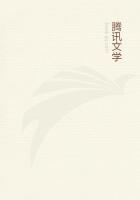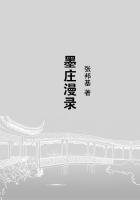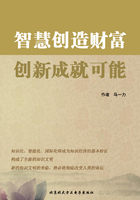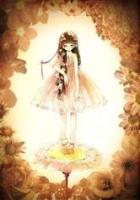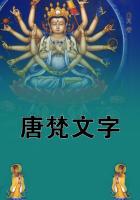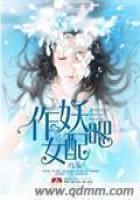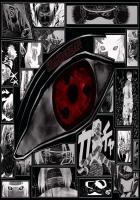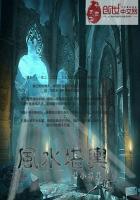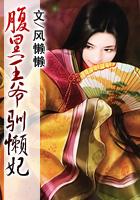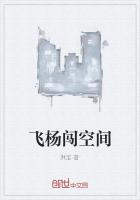"In vain is the net spread in the sight of any bird." He clearly saw that it was not for any love of the Dissenters that they were so suddenly delivered from their persecutions, and placed on a kind of equality with the Church. The king's object was the establishment of Popery. To this the Church was the chief obstacle. That must be undermined and subverted first. That done, all other religious denominations would follow. All that the Nonconformists would gain by yielding, was the favour Polyphemus promised Ulysses, to be devoured last. Zealous as he was for the "liberty of prophesying," even that might be purchased at too high a price. The boon offered by the king was "good in itself," but not "so intended." So, as his biographer describes, when the regulators came, "he expressed his zeal with some weariness as perceiving the bad consequences that would ensue, and laboured with his congregation" to prevent their being imposed on by the fair promises of those who were at heart the bitterest enemies of the cause they professed to advocate. The newly-modelled corporation of Bedford seems like the other corporations through the country, to have proved as unmanageable as the old. As Macaulay says, "The sectaries who had declared in favour of the Indulgence had become generally ashamed of their error, and were desirous to make atonement." Not knowing the man they had to deal with, the "regulators" are said to have endeavoured to buy Bunyan's support by the offer of some place under government. The bribe was indignantly rejected. Bunyan even refused to see the government agent who offered it, - "he would, by no means come to him, but sent his excuse." Behind the treacherous sunshine he saw a black cloud, ready to break. The Ninevites' remedy he felt was now called for. So he gathered his congregation together and appointed a day of fasting and prayer to avert the danger that, under a specious pretext, again menaced their civil and religious liberties. A true, sturdy Englishman, Bunyan, with Baxter and Howe, "refused an indulgence which could only be purchased by the violent overthrow of the law."Bunyan did not live to see the Revolution. Four months after he had witnessed the delirious joy which hailed the acquittal of the seven bishops, the Pilgrim's earthly Progress ended, and he was bidden to cross the dark river which has no bridge. The summons came to him in the very midst of his religious activity, both as a preacher and as a writer. His pen had never been more busy than when he was bidden to lay it down finally. Early in 1688, after a two years' silence, attributable perhaps to the political troubles of the times, his "Jerusalem Sinner Saved, or a Help to Despairing Souls," one of the best known and most powerfully characteristic of his works, had issued from the press, and had been followed by four others between March and August, the month of his death. These books were, "The Work of Jesus Christ as an Advocate;" a poetical composition entitled "The Building, Nature, and Excellency of the House of God," a discourse on the constitution and government of the Christian Church; the "Water of Life," and "Solomon's Temple Spiritualized." At the time of his death he was occupied in seeing through the press a sixth book, "The Acceptable Sacrifice," which was published after his funeral. In addition to these, Bunyan left behind him no fewer than fourteen works in manuscript, written at this time, as the fruit of his fertile imagination and untiring pen. Ten of these were given to the world soon after Bunyan's death, by one of Bunyan's most devoted followers, Charles Doe, the combmaker of London Bridge (who naively tells us how one day between the stairhead and the middle of the stairs, he resolved that the best work he could do for God was to get Bunyan's books printed and sell them - adding, "I have sold about 3,000"), and others, a few years later, including one of the raciest of his compositions, "The Heavenly Footman," bought by Doe of Bunyan's eldest son, and, he says, "put into the World in Print Word for Word as it came from him to Me."At the time that death surprised him, Bunyan had gained no small celebrity in London as a popular preacher, and approached the nearest to a position of worldly honour. Though we must probably reject the idea that he ever filled the office of Chaplain to the Lord Mayor of London, Sir John Shorter, the fact that he is styled "his Lordship's teacher" proves that there was some relation more than that of simple friendship between the chief magistrate and the Bedford minister. But the society of the great was never congenial to him. If they were godly as well as great, he would not shrink from intercourse, with those of a rank above his own, but his heart was with his own humble folk at Bedford. Worldly advancement he rejected for his family as well as for himself. A London merchant, it is said, offered to take his son Joseph into his house of business without the customary premium. But the offer was declined with what we may consider an overstrained independence. "God," he said, "did not send me to advance my family but to preach the gospel." "An instance of other-worldliness," writes Dr. Brown, "perhaps more consistent with the honour of the father than with the prosperity of the son."Bunyan's end was in keeping with his life. He had ever sought to be a peacemaker and to reconcile differences, and thus had "hindered many mishaps and saved many families from ruin." His last effort of the kind caused his death. The father of a young man in whom he took an interest, had resolved, on some offence, real or supposed, to disinherit his son. The young man sought Bunyan's mediation. Anxious to heal the breach, Bunyan mounted his horse and took the long journey to the father's house at Reading -the scene, as we have noticed, of his occasional ministrations -where he pleaded the offender's cause so effectually as to obtain a promise of forgiveness. Bunyan returned homewards through London, where he was appointed to preach at Mr. Gamman's meeting-house near Whitechapel. His forty miles' ride to London was through heavy driving rain. He was weary and drenched to the skin when he reached the house of his "very loving friend," John Strudwick, grocer and chandler, at the sign of the Star, Holborn Bridge, at the foot of Snow Hill, and deacon of the Nonconformist meeting in Red Cross Street. A few months before Bunyan had suffered from the sweating sickness. The exposure caused a return of the malady, and though well enough to fulfil his pulpit engagement on Sunday, the 19th of August, on the following Tuesday dangerous symptoms declared themselves, and in ten days the disease proved fatal. He died within two months of completing his sixtieth year, on the 31st of August, 1688, just a month before the publication of the Declaration of the Prince of Orange opened a new era of civil and religious liberty, and between two and three months before the Prince's landing in Torbay. He was buried in Mr. Strudwick's newly-purchased vault, in what Southey has termed the Campo Santo of Nonconformists, the burial-ground in Finsbury, taking its name of Bunhill or Bonehill Field, from a vast mass of human remains removed to it from the charnel house of St. Paul's Cathedral in 1549. At a later period it served as a place of interment for those who died in the Great Plague of 1665. The day after Bunyan's funeral, his powerful friend, Sir John Shorter, the Lord Mayor, had a fatal fall from his horse in Smithfield, and "followed him across the river."By his first wife, whose Christian name is nowhere recorded, Bunyan had four children - two sons and two daughters; and by his second wife, the heroic Elizabeth, one son and one daughter. All of these survived him except his eldest daughter Mary, his tenderly-loved blind child, who died before him. His wife only survived him for a brief period, "following her faithful pilgrim from this world to the other whither he was gone before her" either in 1691 or 1692.
同类推荐
热门推荐
智慧创造财富 创新成就可能
赚钱与财富是两个概念,财富包括精神、情感、生命等内容,没有学识是不足以铸就真正的财富的,财富是一种境界。当今人类已经进入一个智慧信息的时代,是以知识为本的时代。这个时代的经商需要有灵活的头脑,智慧可以改变命运,智慧可以创造财富,拥有智慧可以从根本上掌握开启未来的钥匙。正所谓观念创造未来,智慧创造财富,创新成就可能。




